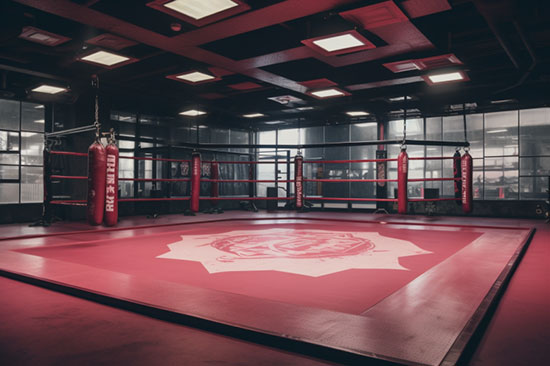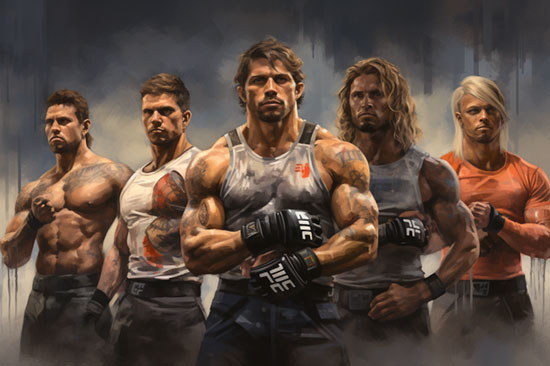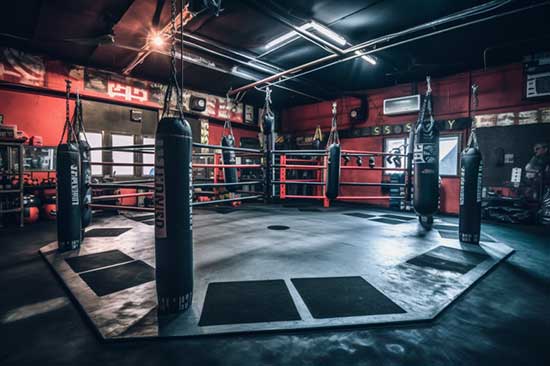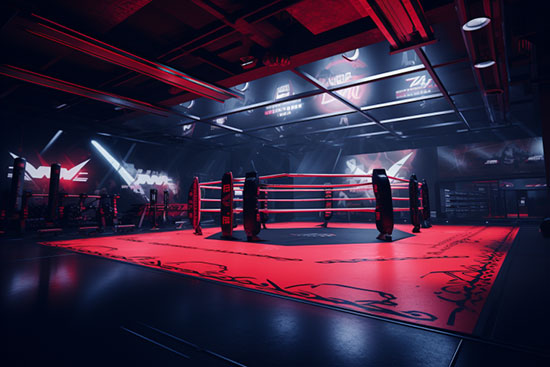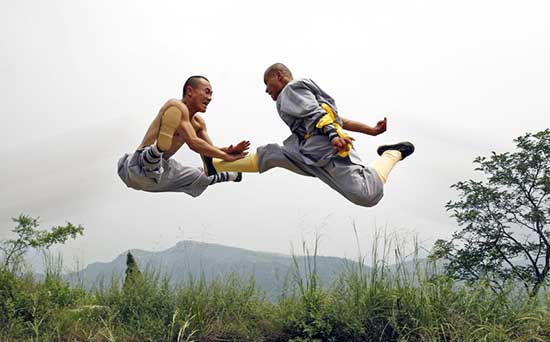Joe Rogan is an American comedian, podcast host, and martial artist. He is a black belt in Brazilian Jiu-Jitsu, Taekwondo, and Eddie Bravo’s 10th Planet Jiu-Jitsu. Rogan has been practicing martial arts since he was 14 years old, and his passion for it has led him to explore various combat sports, including kickboxing, wrestling, and mixed martial arts (MMA).
Contents
Early Years in Martial Arts
Rogan’s first martial arts experience was with Taekwondo, where he earned a black belt at the age of 15.
He continued to train in Taekwondo for several years and even competed in several tournaments, winning a number of them.
Later, Rogan began training in kickboxing and even became the Massachusetts state champion in the lightweight division in 1985.
He continued to compete in kickboxing and eventually transitioned to full-contact karate and boxing.
Introduction to MMA
In the early 1990s, Rogan became interested in MMA, which was then an emerging sport. He watched the first UFC event in 1993 and was immediately hooked.
Inspired by what he saw, Rogan began training in Brazilian Jiu-Jitsu under the legendary Gracie family, who were instrumental in the development of MMA and the UFC.
At the time, Brazilian Jiu-Jitsu was a relatively unknown martial art outside of Brazil and the few pockets of enthusiasts in the United States. But Rogan, like many others, recognized the effectiveness of the art in a real-life fight situation.
Joe Rogan’s MMA Career
Rogan made his MMA debut in May 1997 at the age of 29. He fought in the UFC 12 event, facing off against veteran fighter Tony “The Freak” Halme.
The fight did not go well for Rogan, as he was knocked out in the first round. Rogan was disappointed with his performance and realized that he needed to train harder and focus more on his conditioning.
After the loss, Rogan took a break from MMA and focused on his standup comedy career. But he continued to train in Brazilian Jiu-Jitsu and even competed in several grappling tournaments.
Return to the Octagon
In 2001, Rogan made his return to the UFC as a commentator, providing color commentary alongside Mike Goldberg. Over the years, Rogan’s insightful and entertaining commentary has become a staple of the UFC broadcasts, earning him a legion of fans and respect among fighters and fans alike.
Despite his success as a commentator, Rogan never lost his passion for MMA and continued to train in Brazilian Jiu-Jitsu and other martial arts. In 2007, at the age of 40, Rogan decided to make a comeback as a fighter.
Joe Rogan’s MMA Record
Rogan’s MMA record is not particularly impressive, as he has only had one fight in the UFC and one in a lesser-known promotion.
However, Rogan’s passion for MMA and his role as a commentator have made him a legend in the sport.
Here is a breakdown of Rogan’s MMA record:
| Opponent | Result | Event | Date |
|---|---|---|---|
| Tony Halme | Loss | UFC 12 | February 7, 1997 |
| Wesley “Cabbage” Correira | Win | UFC 37.5 | June 22, 2002 |
Rogan’s Win Over Wesley “Cabbage” Correira
Rogan’s only win in MMA came at the UFC 37.5 event in 2002, where he faced off against the heavy-hitting Wesley “Cabbage” Correira.
The match was a physical and intense affair, with both fighters landing some heavy shots. In the end, Rogan emerged as the victor, winning by technical knockout in the second round.
While the win was undoubtedly a proud moment for Rogan, it did not mark the beginning of a new career as a fighter. After the fight, Rogan retired from MMA once again and has not competed since.
Joe Rogan’s Influence on MMA
Despite his limited record as a fighter, Rogan’s contribution to MMA goes beyond his brief foray as a fighter. As a commentator, Rogan has provided invaluable analysis and insight into the sport, helping to educate fans and fighters alike.
His passion for the sport has also helped to grow the sport, as he has used his platform to promote MMA and its benefits as a martial art and sport.
Moreover, Rogan’s influence extends to his role as a podcast host, where he has interviewed numerous fighters, coaches, and other personalities in the world of MMA. His interviews have helped to shed light on the often-hidden world of MMA and provide fans with an inside look at the sport.
Joe Rogan and MMA Culture
Rogan is more than just a commentator or fighter; he is a key figure in the MMA culture. His passion and enthusiasm for the sport have inspired many fighters and fans alike, who look up to him as a role model and source of inspiration.
Rogan’s impact on MMA culture can be seen in his comedy routines, where he often talks about his love for the sport and its fighters.
He has also used his podcast to promote MMA culture, discussing topics such as performance-enhancing drugs, fighter safety, and the psychology of fighters.
The Joe Rogan Experience Podcast
The Joe Rogan Experience (JRE) is a podcast hosted by Joe Rogan that covers a wide range of topics, including science, pop culture, politics, and, of course, MMA.
The podcast has become one of the most popular on the internet, boasting millions of listeners and viewers on YouTube.
On the JRE, Rogan has interviewed numerous fighters, coaches, and MMA personalities, including Georges St-Pierre, Conor McGregor, Anderson Silva, and BJ Penn.
His interviews have provided fans with in-depth insights into the world of MMA and its fighters.
Joe Rogan and the UFC
Rogan’s relationship with the UFC has been a key part of his career and his contributions to MMA. He has been a commentator for the UFC since 2001, providing analysis and commentary for some of the biggest fights in the sport’s history.
Moreover, Rogan has been a vocal advocate for the UFC and its fighters, using his platform to promote the sport and its benefits as a martial art. He has also been critical of the sport when necessary, calling out issues such as fighter safety and performance-enhancing drugs.
Joe Rogan’s Legacy in MMA
Joe Rogan’s legacy in MMA is not just about his contributions as a commentator or fighter. He has helped to grow the sport and promote it as a legitimate martial art and sport, while also shedding light on the issues facing fighters and the industry as a whole.
Moreover, Rogan’s passion for the sport and his role as a cultural figurehead has helped to inspire a generation of fighters, fans, and enthusiasts.
His influence extends far beyond the cage, as his podcast and comedy routines have helped to shape the discourse around MMA and its place in modern culture.
Conclusion
Joe Rogan may not have the most impressive MMA record, but his contribution to the sport goes far beyond his brief stint as a fighter.
As a commentator, podcaster, and cultural figurehead, Rogan has helped to grow the sport and promote its virtues as a martial art and sport.
Rogan’s passion and enthusiasm for MMA have helped to inspire countless people to take up the sport and train in martial arts.
His legacy in MMA will undoubtedly be felt for years to come, as the sport continues to grow and evolve.
